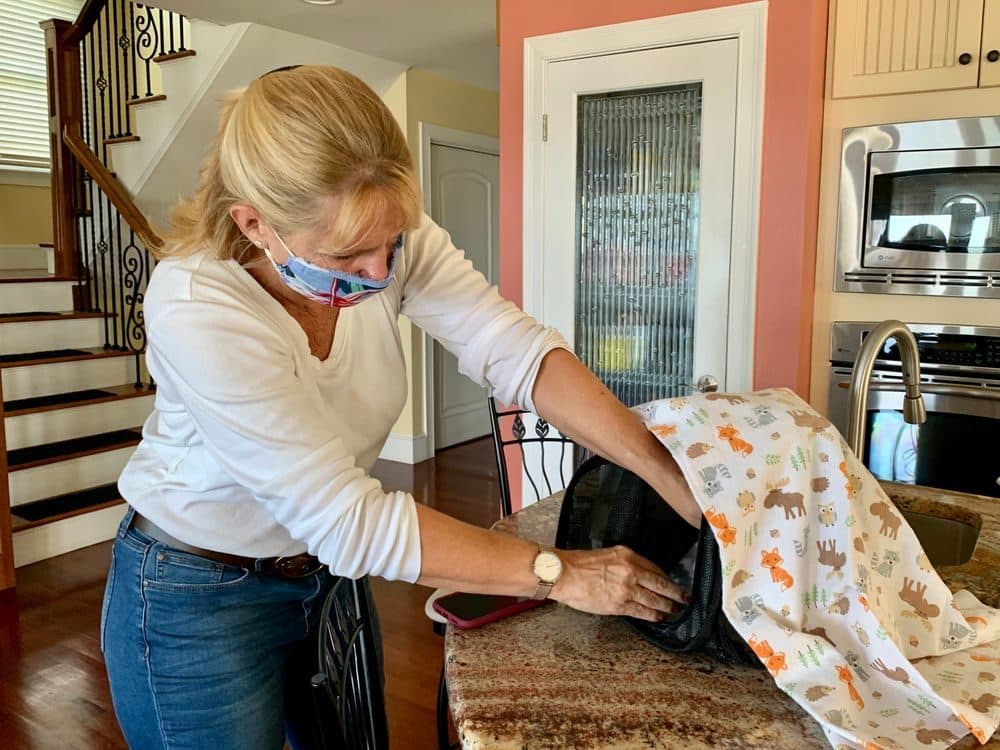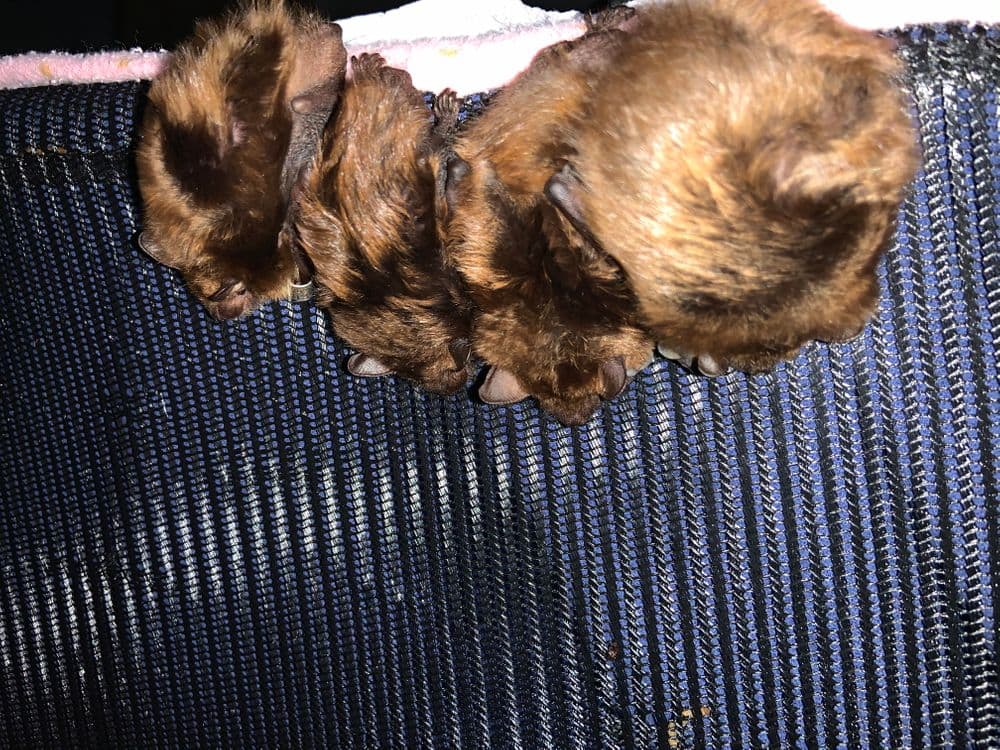Advertisement
A Dozen Bats Quarantine In Wildlife Rehabilitator's Portsmouth House Amid Concerns Over COVID-19

When Kristin Fletcher cares for a sick or injured bat, she is always careful with her equipment. There are the basics — like her “bat hut,” a portable mesh bag she uses to transport the animals.
Fletcher also keeps a blanket on hand to shield the nocturnal animals from harsh daylight, and tweezers to safely feed them mealworms by hand. But since the COVID-19 pandemic hit Rhode Island this spring, Fletcher’s checklist has gotten longer.
“Even cleaning or being anywhere near them, I do use an N95 respirator and I also use gloves, so as not to possibly spread COVID to them,” said Fletcher, describing the risk as “human-to-bat.”
Fletcher is the executive director of the Wildlife Rehabilitators Association of Rhode Island, a nonprofit organization that provides medical care to injured and orphaned wild animals. The group receives over 5,000 animals every year, which Fletcher directs to her team of licensed rehabilitators across the state.
Fletcher personally cares for the organization’s bats — two silver-haired bats, nine big brown bats, and one little brown bat — which have been in her Portsmouth home since last winter.
None of them need rehabilitating anymore, she said. Before COVID-19 hit in March, Fletcher had even begun conditioning them for release back into the wild.
“Then it was determined that bats were not going to be able to be released across the United States until they determined how COVID might affect the bat population,” she said.
Suddenly, Fletcher had to hold onto the bats in case she could have infected them with the virus. She said this was a reversal of the typical concern — that bats can spread disease to humans.
But over the past 15 years, a new fungal disease, called “white-nose syndrome,” has ravaged bats in the northeast, killing up to 95 percent of some populations. Bat researchers suspect humans inadvertently introduced the fungus to North America around 2006, and its effects have informed their approach to COVID-19.
“Of course we’re all looking at it in the context of this devastating fungal disease, you know, and the devastating impact that’s had and continues to have on bat populations in the United States,” said Charlie Brown, the principal wildlife biologist with the Rhode Island Department of Environmental Management. “Here’s another novel disease that could potentially affect bat populations.”
Advertisement
Brown says most states put moratoriums on bat releases this year to protect wild populations from COVID-19. The animals hibernate and raise babies in large clusters, so even a few sick individuals can have an outsize impact — much like with humans.
“They’re social animals, and they congregate together in these groups, so any kind of disease has the potential to quickly spread through the population in those circumstances,” Brown said.

Some people have already come to associate bats with the current pandemic, as the CDC disclosed that COVID-19 likely originated in a bat. But Brown says researchers know little about how the virus could spread from bats to humans on a wider scale. That’s another reason why Rhode Island is being careful with Fletcher’s rehabilitated bats.
“Even if it doesn’t affect bats directly — meaning bats don’t become infected and die — they [could] maintain it as a reservoir for possible continued exposure back to people again,” Brown said.
For months, Fletcher has been the only person to care for, or even see the bats — so the animals could only be infected if she herself unknowingly had COVID-19 and exposed them to the virus. Last week, Rhode Island officials finally informed her that she could release the bats, if they first tested negative at a veterinary clinic at the University of Pennsylvania.
Fletcher collected separate samples from each bat on Wednesday, and they all came back negative for COVID-19 on Friday morning. She is waiting to pick an ideal location and evening to free all except one juvenile, which she’ll shelter for another winter. But Fletcher thinks the release will have to happen soon — to give the bats time to acclimate or migrate before temperatures drop further.
She says her nocturnal guests have indicated they’re ready too, becoming more active on warmer nights this summer.
“I really did feel for them, because they just wanted to go off and be bats,” she said.
Fletcher now has the negative test results to confirm that they can go off and be bats safely.
This story is a production of New England News Collaborative. It was originally published by The Public's Radio (RIPR) on Sept. 18, 2020.